Challenges in protecting property rights
Vietnam marked an important milestone when the Government issued Resolution No. 05/2025/NQ-CP, the first document establishing a legal framework for the crypto asset market. This is a historic turning point, not only opening up opportunities for breakthroughs in the digital finance sector but also posing major challenges in managing and supervising a highly volatile capital market. With this resolution, Vietnam has demonstrated a vision that is ahead of many countries that are still hesitant in recognizing digital assets.
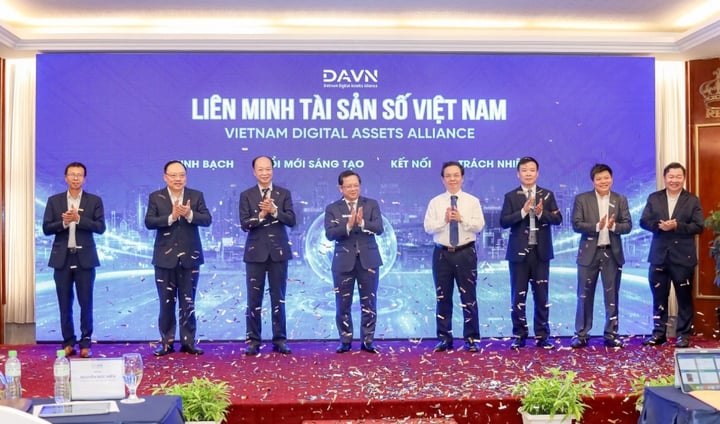
According to Mr. Nguyen Dinh Thang, Chairman of the Vietnam Digital Asset Alliance, digital assets are not only an inevitable trend but also a bridge to help Vietnam develop safely, transparently, effectively and integrate deeply into the global economy . Vietnam has a great opportunity to develop digital asset exchanges and ecosystems, but also faces many risks and challenges that need to be managed effectively.
The success of the digital asset market depends on the ability to establish a management mechanism that is both strict enough to minimize risks and flexible enough to encourage innovation. Under the new regulations, digital assets are recognized as a legal asset, which means they are protected by law as tangible assets – an important step in establishing the legal value of cryptocurrencies, NFTs and other forms of intangible assets.
However, there are still many gaps in the protection of intellectual property rights for crypto assets. Mr. Luong Hoang Hung - Editor-in-Chief of Intellectual Property and Innovation Magazine, Vice President of the Vietnam Digital Asset Alliance said: "Vietnamese law currently has a mechanism to protect digitalized intangible assets and authenticate ownership, but it needs to be specified and updated regularly to keep up with technological advances."
Blockchain technology – the foundation of crypto assets – is capable of recording the entire transaction history, but cannot prove legal ownership. Therefore, without a clear and transparent registration mechanism, digital assets will have difficulty being protected by law in the event of a dispute.
Need for transparent and synchronous legal framework
According to experts, Vietnam needs to build a strict legal framework without losing its competitive advantage. Regulations must ensure compliance with international standards such as anti-money laundering (AML) and know-your-customer (KYC), while being flexible enough to suit domestic practices.
Mr. Luong Hoang Hung suggested a feasible solution is to combine blockchain technology with traditional legal tools. It is possible to develop a digital asset registration system where owners record their intellectual property rights. This system needs to be integrated with blockchain to ensure transparency and immutability. In addition, training a team of legal experts who are knowledgeable about digital technology is also a key factor in handling future disputes.
At the launching ceremony of the Vietnam Digital Assets Alliance (DAVN) on October 8, Dr. Nguyen Duc Hien, Deputy Head of the Central Economic Commission, highly appreciated the initiative to establish the Alliance and considered it a timely step, in line with the global digital economic development trend. As the Party's strategic advisory body in the socio-economic field, the Central Economic Commission supports and will accompany the process of promoting the formation and development of the Vietnam Digital Assets Alliance - an organization of practical significance, contributing significantly to national digital transformation.
Investing in digital asset human resources
According to Associate Professor, Dr. Tran Dinh Thien, former Director of the Vietnam Economic Institute, member of the Prime Minister's Policy Advisory Council, Vietnam currently ranks third in the world in terms of digital asset acceptance, which is an important foundation for the development of international financial centers in Ho Chi Minh City and Da Nang. However, along with opportunities, issues of safety, data security and technology infrastructure must be given special attention.
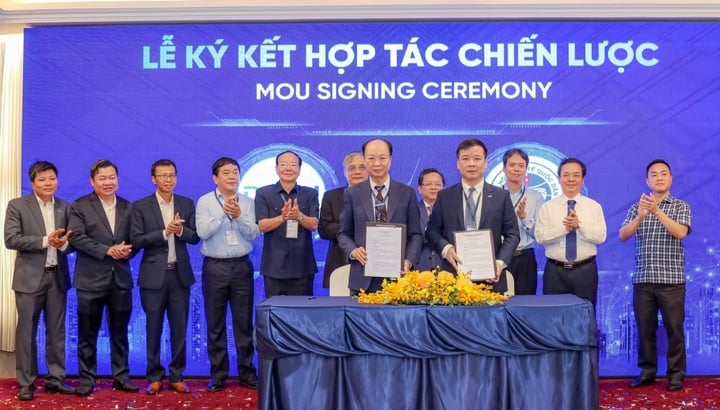
Prof. Dr. Hoang Van Cuong, Vice President of the National Economics University, member of the Prime Minister's Policy Advisory Council, said that to develop a healthy crypto-asset market, it is necessary to build a comprehensive support ecosystem, from capital mobilization mechanisms, tax policies to business models. In particular, intellectual human resources in the field of digital assets are the key factor. The Digital Asset Alliance needs to coordinate with universities to train and share practical experiences, contributing to the formation of a high-quality team of experts.
At the ceremony, the Vietnam Digital Asset Alliance signed a strategic cooperation agreement with the National Economics University and the Banking University of Ho Chi Minh City on training digital asset human resources. This activity aims to build a high-quality workforce, promote research and application of new technologies, and contribute to the sustainable development of the Vietnamese digital asset ecosystem.
Source: https://mst.gov.vn/so-huu-tri-tue-thoi-so-hoa-lam-chu-tai-san-ma-hoa-bang-phap-luat-197251011212903854.htm


![[Photo] General Secretary attends the parade to celebrate the 80th anniversary of the founding of the Korean Workers' Party](https://vphoto.vietnam.vn/thumb/1200x675/vietnam/resource/IMAGE/2025/10/11/1760150039564_vna-potal-tong-bi-thu-du-le-duyet-binh-ky-niem-80-nam-thanh-lap-dang-lao-dong-trieu-tien-8331994-jpg.webp)

![[Photo] Discover unique experiences at the first World Cultural Festival](https://vphoto.vietnam.vn/thumb/1200x675/vietnam/resource/IMAGE/2025/10/11/1760198064937_le-hoi-van-hoa-4199-3623-jpg.webp)

![[Photo] Opening of the World Cultural Festival in Hanoi](https://vphoto.vietnam.vn/thumb/1200x675/vietnam/resource/IMAGE/2025/10/10/1760113426728_ndo_br_lehoi-khaimac-jpg.webp)



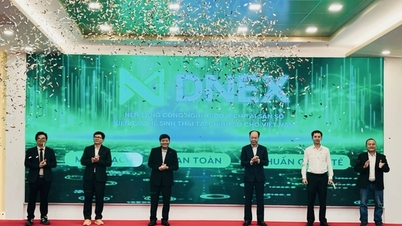








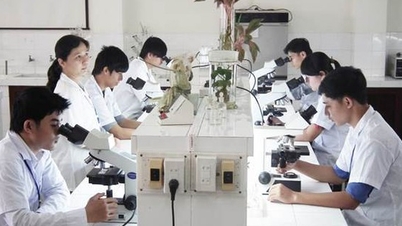
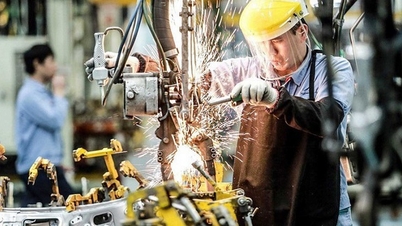


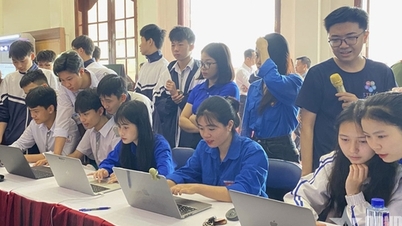
![[Photo] Ho Chi Minh City is brilliant with flags and flowers on the eve of the 1st Party Congress, term 2025-2030](https://vphoto.vietnam.vn/thumb/1200x675/vietnam/resource/IMAGE/2025/10/10/1760102923219_ndo_br_thiet-ke-chua-co-ten-43-png.webp)

































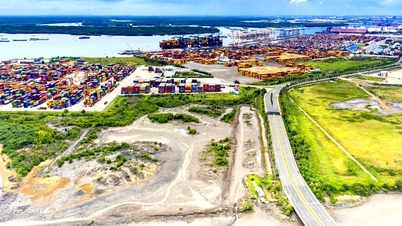







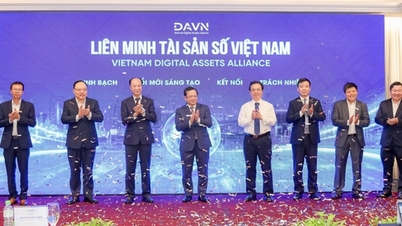







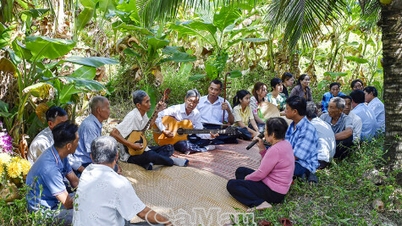
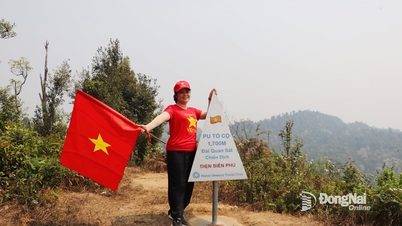













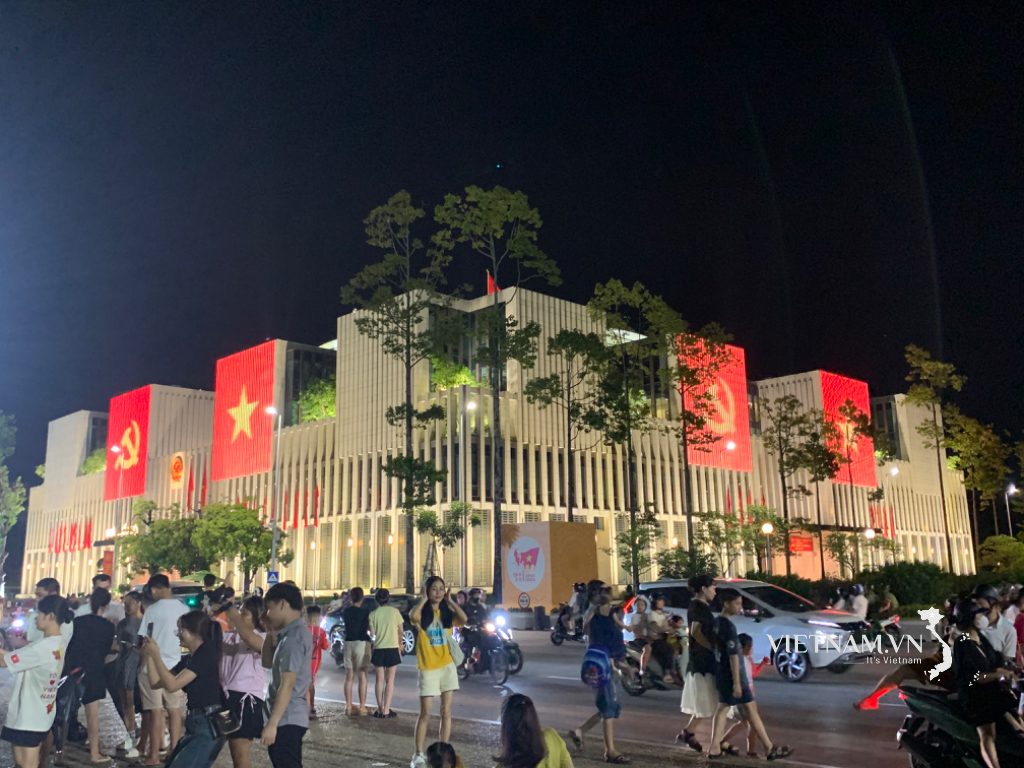

Comment (0)